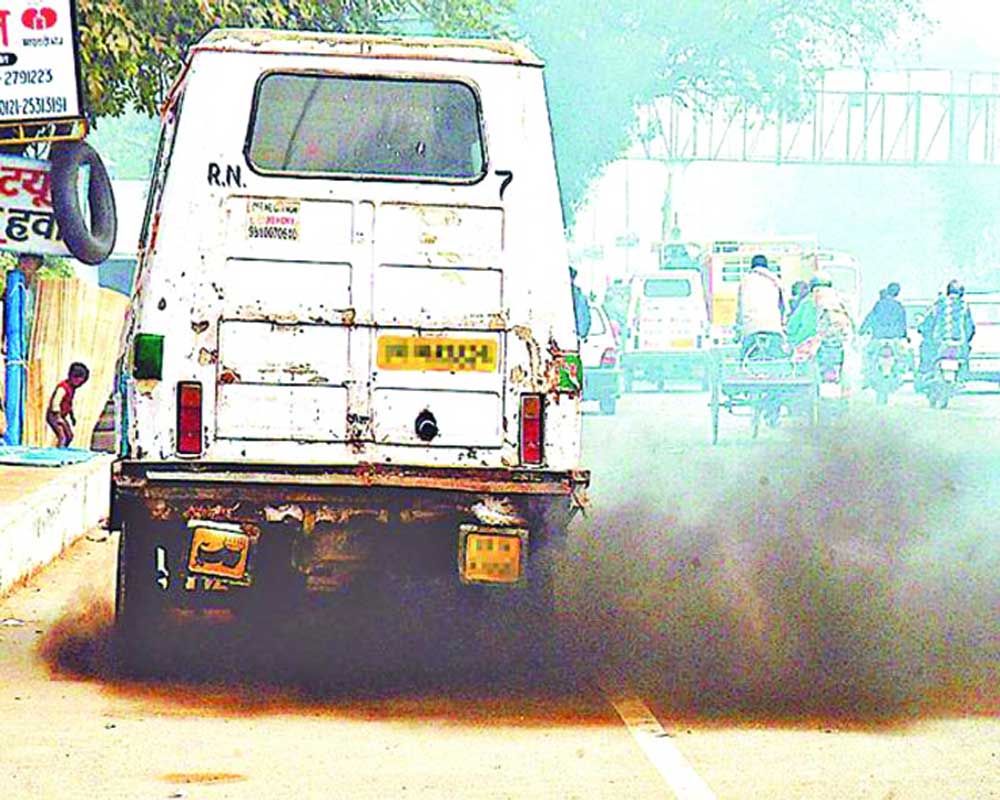The intention to protect the environment and health of the citizens is no doubt vital but important policy decisions should not be a knee-jerk reaction to long-standing problems
As the national Capital reels under the impact of an increasingly toxic air quality and once again questions are being raised about the measures taken to curb air pollution in Delhi-NCR, one of the decisions taken by the National Green Tribunal (NGT) in April 2015 comes to mind. The tribunal passed an order prohibiting 15-year-old petrol vehicles and 10-year-old diesel automobiles from plying and asked for them to be pulled off the roads with immediate effect. The ban took the nation, particularly Delhiites, by surprise as the national Capital was one of the first cities to be chosen for its implementation. The prohibition impacted over 37 lakh of Delhi’s one crore registered vehicles, much to the chagrin of owners who were suddenly faced with the prospect of having to buy new cars while their old vehicles were fated to be impounded and scrapped, instead of being sold in the second-hand car market. Whatever hopes the citizens might have had of getting some relief from the Supreme Court (SC) were also belied when the apex court ruled in favour of the NGT’s order in October 2018.
However, four years down the line, the implementation of the tribunal’s 2015 order remains inconclusive, for many reasons. First, the Delhi Scrappage Policy, 2018, provides for guidance on the procedure for scrapping of old vehicles (wherein automobiles registered in Delhi shall be broken up only by an authorised scrapper) but the vehicle class-wise scrappage charge is yet to be finalised.
Second, the administration, too, is yet to decide how to accommodate the 37 lakh vehicles once they start impounding them. Third, most of the registration certificates (RC) of the vehicles affected by the NGT’s ban still show fitness and registration validity for at least two to three years more, making it difficult to pull them off the roads, as it would overturn the RC issued by the Regional Transport Office. Understandably, the owners of the vehicles are peeved since they paid the lifetime road tax for the automobile and now stand to suffer a loss on that payment once the car is scrapped.
Another negative fallout of the ban is the fact that the second hand car market has crashed and rates for old vehicles have fallen like never before. Even well-maintained vehicles, with a lot of good miles left in them, are available at throwaway prices.
The blanket ban on old vehicles also overlooked the provision of giving a fair chance to owners to prove their fitness before it was condemned, as no screening system was put in place. The manner in which the policy has taken shape and the law passed, basically ignores the efforts of those committed vehicle owners who diligently tended to their automobiles and made sure that they were not adding to the pollution problems of their city. The ban also impacts all economic classes in one go. How is a middle class family that invested a substantial amount in the purchase of a vehicle, suddenly expected to scrap it and raise funds for a new one? Also, what about those vehicles which were used sparingly and have probably not done more than 60,000 to 70,000 km and are in mint condition? Are they to be scrapped and the owner forced to buy a new one? At a time when the country is going through an economic slowdown, would people be willing to invest in a new car? Needless to say, there is no one to answer such uncomfortable questions.
Across the world, the end of life policy for vehicles is very clear, logical and driven by a very smooth procedural system, unlike here. To understand the problem of vehicle ban further, let us take the example of the transport sector. Assuming, that as per the rule, once all the trucks that are over 10 years old are scrapped, a huge chunk of the freighter fleet will disappear. This in turn will increase freight costs and cause the prices of essential commodities to rise. Will the Government then give a life extension to old vehicles in order to keep inflation in check? This is the reason that even today in spite of the ban on 10-year-old diesel vehicles, we see rickety trucks still plying because we have a rule that cannot be fully implemented as the nation is not ready for the consequences. Environmentally-speaking, the vehicle ban was a long time coming given the new heights pollution has scaled in Delhi-NCR and across the country. The much-publicised IIT-Kanpur study that formed the basis of the research eventually led to the ban in Delhi-NCR.
The intention to protect the environment and health of the citizens is no doubt vital but important policy decisions should not be a knee-jerk reaction to long-standing problems. It is high time that all stakeholders sit down and chart out a course for pollution control that is sustainable in every way for everyone.
(The writer is an environmental journalist)


























